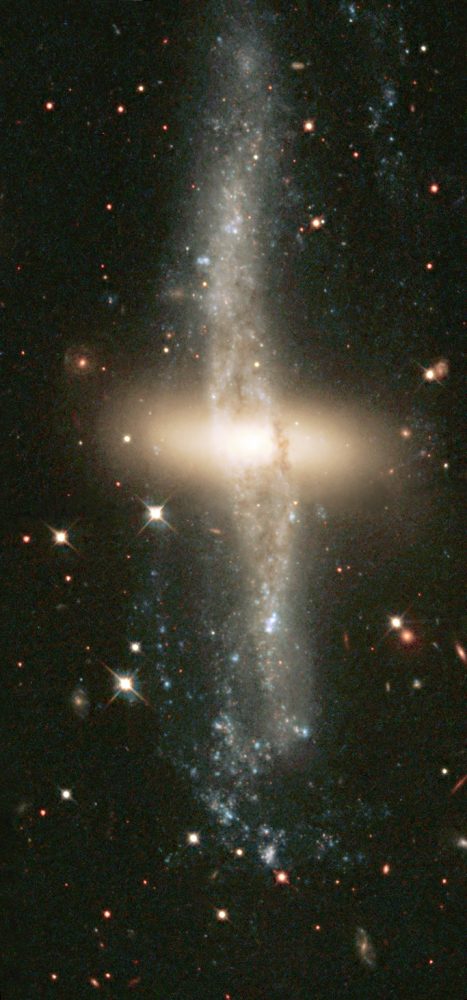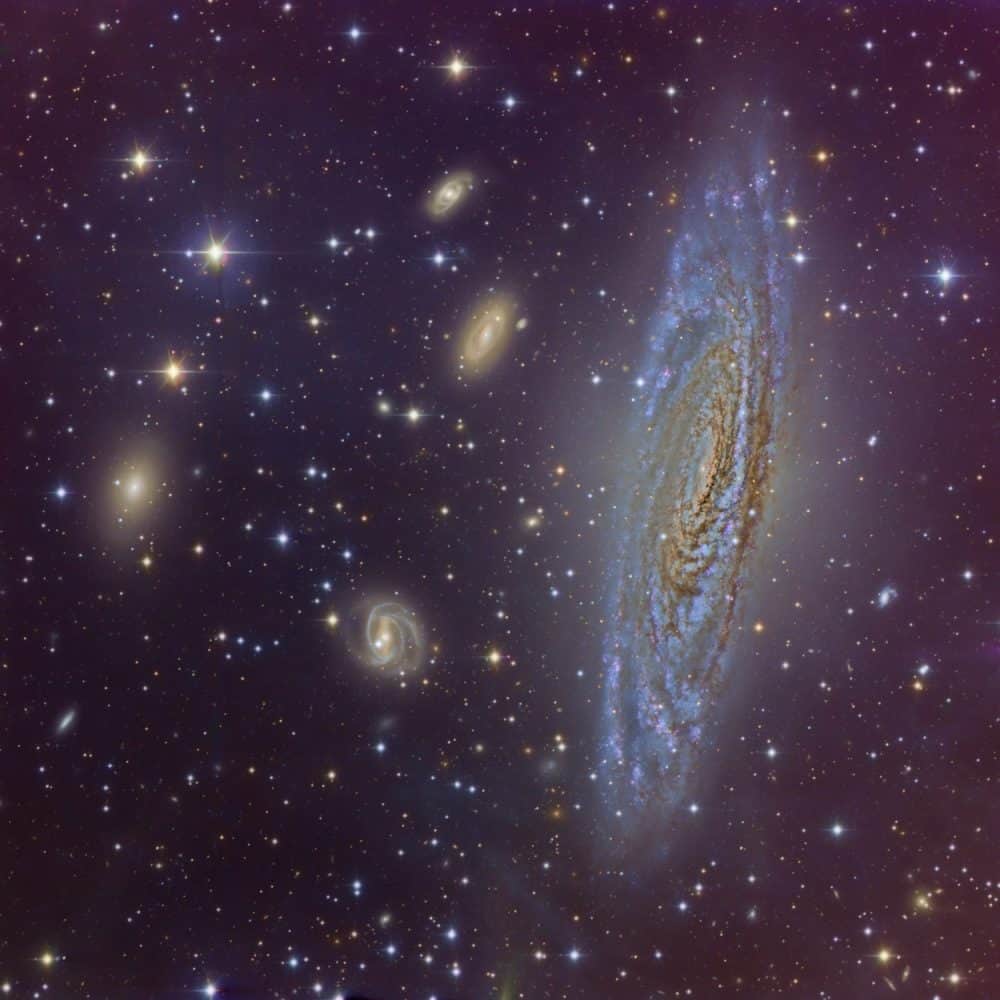Blog
Ernestine Anderson (November 11, 1928 – March 10, 2016) was an American jazz and blues singer. In a career spanning more than six decades, she recorded over 30 albums. She was nominated four times for a Grammy Award. She sang at Carnegie Hall, the Kennedy Center, the Monterey Jazz Festival (six times over a 33-year span), as well as at jazz festivals all over the world. In the early 1990s she joined Qwest Records, the label of fellow Garfield High School grad Quincy Jones.
Ernestine Irene Anderson (and her twin sister Josephine) were born in Houston, Texas, on November 11, 1928. Her mother, Erma, was a housewife, and her father, Joseph, a construction worker who sang bass in a gospel quartet. By the age of three, Anderson showed a talent for singing along with her parents’ old blues 78 rpm records by the likes of Bessie “The Empress of the Blues” Smith. Anderson started singing at a local church, singing solos in its gospel choir.
https://www.youtube.com/watch?v=LPGwUYOTe0Y
more...Walter Louis “Hank” Garland (11 November 1930 – 27 December 2004) was a studio musician who performed with Johnny Cash, Elvis Presley, Patsy Cline, Moon Mullican, Brenda Lee, Roy Orbison, and Patti Page
Born in Cowpens, South Carolina, Garland began playing the guitar at the age of six. He appeared on local radio shows at 12 and was discovered at 14 at a South Carolina record store.He moved to Nashville at age 16, staying in Ma Upchurch’s boarding house, where he roomed with upright bassist Bob Moore and mandolin player & fiddler Dale Potter.
At age 18, Garland recorded his million-selling hit “Sugarfoot Rag“. Garland appeared on the Jubilee with Grady Martin‘s band, and on Eddy Arnold‘s network and syndicated television shows.
https://www.youtube.com/watch?v=_V0jSpCQXcQ
more...Mose John Allison Jr. (November 11, 1927 – November 15, 2016) was an American jazz and blues pianist, singer, and songwriter. He became notable for playing a unique mix of blues and modern jazz, both singing and playing piano. After moving to New York in 1956, he worked primarily in jazz settings, playing with jazz musicians like Stan Getz, Al Cohn, and Zoot Sims, along with producing numerous recordings.
He is described as having been “one of the finest songwriters in 20th-century blues.” His songs were strongly dependent on evoking moods, with his individualistic, “quirky”, and subtle ironic humor. His writing influence on R&B had well-known fans recording his songs, among them Pete Townshend, who recorded his “Young Man Blues” for the Who‘s “Live At Leeds” album in 1970. John Mayall was one of dozens who recorded his classic, “Parchman Farm”, and Georgie Fame used many of Allison’s songs. Others who recorded his songs included Leon Russell (“I’m Smashed”) and Bonnie Raitt(“Everybody’s Crying’ Mercy”).
Allison was born outside Tippo, Mississippi
In 1956, Allison moved to New York City and launched his jazz career, performing with artists such as Stan Getz, Gerry Mulligan, Al Cohn, Zoot Sims, and Phil Woods. His debut album, Back Country Suite, was issued by Prestige in 1957. He formed his own trio in 1958, with Addison Farmer on bass and Nick Stabulas on drums.
https://www.youtube.com/watch?v=l2G-vjHtJZQ
more...Space Telescope Science Institute astronomers are giving the public chances to decide where to aim the NASA/ESA Hubble Space Telescope. Guided by 8, 000 Internet voters, Hubble has already been used to take a close-up, multi-color picture of the most popular object from a list of candidates, the extraordinary ‘polar-ring’ galaxy NGC 4650A.
Located about 130 million light-years away, NGC 4650A is one of only 100 known polar-ring galaxies. Their unusual disk-ring structure is not yet understood fully. One possibility is that polar rings are the remnants of colossal collisions between two galaxies sometime in the distant past, probably at least 1 billion years ago. What is left of one galaxy has become the rotating inner disk of old red stars in the center.
more...
Hubert Laws (born November 10, 1939) is an American flutist and saxophonist with a career spanning over 50 years in jazz, classical, and other music genres. Considering the artistry of the late Eric Dolphy and the popularity of the late Herbie Mann, Laws is notably in the company of the most recognized and respected jazz flutists in the history of jazz, (also the most imitated). Laws is one of the few classical artists who has also mastered jazz, pop, and rhythm-and-blues genres, moving effortlessly from one repertory to another.
Hubert Laws, Jr. was born November 10, 1939, in the Studewood section of Houston, Texas, the second of eight children to Hubert Laws, Sr. and Miola Luverta Donahue. Many of his siblings also entered the music industry, including saxophonist Ronnie and vocalists Eloise, Debra and Johnnie Laws. He began playing flute in high school after volunteering to substitute for the school orchestra’s regular flutist. He became adept at jazz improvisation by playing in the Houston-area jazz group the Swingsters, which eventually evolved into the Modern Jazz Sextet, the Night Hawks, and The Crusaders. At age 15, he was a member of the early Jazz Crusaders while in Texas (1954–60), and also played classical music during those years.
more...Wilbert Thirkield “Big Chief” Ellis (November 10, 1914 – December 20, 1977) was an American blues pianist and vocalist.
Ellis was born in Birmingham, Alabama, United States, and was an autodidact at piano. He played at local parties and dances in the late 1920s before leaving Alabama, traveling the United States and working odd jobs. He served in the Army from 1939 to 1942, then moved to New York, where he accompanied touring blues performers for their concerts in the city. He recorded with Lenox Records in 1945, and recorded for Capitol Records with Sonny Terry and Brownie McGhee in the 1950s.
In 1972, Ellis moved to Washington, D.C., where he operated a liquor store. Towards the end of his life, Ellis began recording for Trix Records, where he played again with McGhee as well as Tarheel Slim and John Cephas.
Ellis died in Birmingham, Alabama, of heart failure aged 63.
more...Hyman Paul Bley, CM (November 10, 1932 – January 3, 2016) was a Canadian pianist known for his contributions to the free jazz movement of the 1960s as well as his innovations and influence on trio playing and his early live performance on the Moog and Arp audio synthesizers. Bley was a long-time resident of the United States. His music has been described by Ben Ratliff of the New York Times as “deeply original and aesthetically aggressive.” Bley’s prolific output includes influential recordings from the 1950s through to his solo piano records of the 2000s.
Bley was born in Montreal, Quebec, on November 10, 1932. His adoptive parents were Betty Marcovitch, an immigrant from Romania, and Joe Bley, owner of an embroidery factory. However, in 1993 a relative from the New York branch of the Bley family walked into Sweet Basil in NYC and informed him that his father was actually his biological parent. At age five Bley studied violin, but at age seven he decided to switch to the piano. By eleven he received a junior diploma from the McGill Conservatory in Montreal. At thirteen he formed a band which played at summer resorts in Ste. Agathe, Quebec. As a teenager he played with touring American bands, including Al Cowan’s Tramp Band. In 1949, when Bley was starting his senior year of high school, Oscar Peterson asked Bley to fulfill his contract at the Alberta Lounge in Montreal. The next year Bley left Montreal for New York City and Juilliard.
https://www.youtube.com/watch?v=9SaLBmLsc4o
more...NGC 7331 (also known as Caldwell 30) is an unbarred spiral galaxy about 40 million light-years (12 Mpc) away in the constellation Pegasus. It was discovered by William Herschel in 1784. NGC 7331 is the brightest member of the NGC 7331 Group of galaxies. The other members of the group are the lenticular or unbarred spirals NGC 7335 and 7336, the barred spiral galaxy NGC 7337 and the elliptical galaxy NGC 7340. These galaxies lie at distances of approximately 332, 365, 348 and 294 million light years, respectively. In both visible light and infrared photos of the NGC 7331, the core of the galaxy appears to be slightly off-center, with one side of the disk appearing to extend further away from the core than the opposite side.
The galaxy is similar in size and structure to the Milky Way, and is often referred to as “the Milky Way’s twin”. However, discoveries in the 2000s regarding the structure of the Milky Way may call this similarity into doubt, particularly because the latter is now believed to be a barred spiral, compared to the unbarred status of NGC 7331.
more...Jazz drummer who has featured with bassists Stanley Clarke and John Lee and is an ex-member of Chick Corea’s Return To Forever. He has also worked with a number of diverse artists such as Marvin Gaye, Roberta Flack, Phil Collins and Julee Cruise as well as holding the distinction of being Stevie Wonder’s touring drummer for a number of years.
Alfredo Remus is an Argentine musician, double bass player, performer of various genres of American popular music, especially tango , jazz , Argentine folklore and bossa nova . born 1938
He participated as bassist in the historical album the Misa Criolla ( 1964 ), by Ariel Ramírez . He has accompanied important musicians and groups such as Paul Gonsalves , Vinícius de Moraes , Maria Bethânia , Enrique “Mono” Villegas , Gato Barbieri , Mercedes Sosa , Tony Bennett, Ariel Ramírez , Víctor Heredia , Alberto Cortez , Trio Los Panchos , Raphael , Zupay Quartet , Dyango , Leonardo Favio , Sandro , Susana Rinaldi , Antonio Carlos Jobim , among others.
He was a frequent participant in a series of meetings of improvisation and informal folk experimentation at Eduardo Lagos’ house, baptized humorously by Hugo Díaz as folklorisons , which, like jazz jam sessions , used to gather Lagos, Astor Piazzolla and Díaz, with other musicians such as Remus himself, Oscar Cardozo Ocampo , Domingo Cura and Oscar López Ruiz , among others.
more...World Music on Flamenco Fridays with Cameron
From the film Tirititando de Frío
An interesting counting method has been used by Pepe Romero, in his book Classical Guitar Style and Technique, which is 2 measures of 3
4 time followed by 3 measures of 2
4 time. This puts the emphasis on the last beat of each measure:
It is played at about 240 beats per minute, most commonly in an A-phrygian mode, with a sharpened third to make A major the root chord. A typical rasgueado (a strumming pattern that sets the rhythm) involves only the A and B♭ chords as follows:
In a dense swampland in Georgia, just north of the Florida border, you find the headwaters of the Suwannee River. The Suwannee is known as a “blackwater river” because of its dark-brown waters laden with organic material. This river system has been called one of the most pristine in the United States, but some environmental pressures are putting that distinction in jeopardy.
Unlike other blackwater rivers, the Suwannee maintains its inky color along its entire 400-kilometer (250-mile) journey to the sea. When the river finally meets the Gulf of Mexico along Florida’s Big Bend—that portion of coast where the state’s panhandle curves to meet its peninsula—its dark waters act like a tracer, revealing whereby the river water mixes with the sea. That mixing was on display on February 20, 2015, when the Operational Land Imager on Landsat 8 captured this view.
The image above was entered into NC State’s Envisioning Science image contest by Alice Alonso, a former research scientist in the university’s Biosystems Analytics Lab and now a researcher at the Université catholique de Louvain. As she described, the image “captures a large river discharge event, which resulted in a mesmerizing dark river plume contrasting with the deep blue color of the Gulf of Mexico.” It is, in effect, a testament to the freshwater contribution of the Suwannee River to the sea and an echo of the unique, swampy ecosystem.
more...Donald Byron (born November 8, 1958) is an American composer and multi-instrumentalist. He primarily plays clarinet, but has also used bass clarinet and saxophones.
Though rooted in jazz, Byron’s music is stylistically eclectic. He has worked in many different musical genres, ranging from klezmer music and German lieder, to Raymond Scott‘s “cartoon-jazz,” hard rock/metal, and rap. Most of Byron’s albums have been conceptual, devoted to works of a particular musician and/or style of music.
Byron was born in The Bronx, in New York City. Both parents were musicians: his mother was a pianist and his father played bass in calypso bands. As well as listening to jazz recordings by Dizzy Gillespie, Miles Davis and others, he was exposed to other styles through trips to the ballet and symphony concerts.
more...Kenny Cox (November 8, 1940 – December 19, 2008) was a jazz pianist performing in the post bop, hard bop and bebop mediums. Cox was pianist for singer Etta Jones during the 1960s and was also a member of a quintet led by trombonist George Bohannon. By the end of the late 1960s he had formed his own Kenny Cox and the Contemporary Jazz Quintet, which recorded two albums for Blue Note Records before the end of the decade. Cox has appeared as a contributor on various albums, and has also performed live with such musicians as Rahsaan Roland Kirk, Eddie Harris, Jackie McLean, Roy Haynes, Ben Webster, Wes Montgomery, Kenny Dorham, Philly Joe Jones, Kenny Burrell, Donald Byrd, Roy Brooks, Charles McPherson, and Curtis Fuller. During the 1980s he formed the Detroit-based Guerilla Jam Band, a group which performed with Regina Carter, James Carter, Tani Tabbal, and Craig Taborn. Cox was responsible for the short-lived Strata Records.
more...
Warren Battiste was born in New Orleans in 1925 and was taught to play the guitar by his father who was a banjo player at Preservation Hall. Warren has performed at numerous jazz clubs on Bourbon Street, Preservation Hall, Snug Harbor, the Matador and many others. Warren also appeared in the film “Shy People” with Jill Clayburgh and Barbara Hershey. He has taught music at Wequachie High School, Essex County College and the Newark Art Center in Newark, New Jersey. Warren has performed with George Benson, The Platters, The Inkspots and Illinois Jacquet to name a few. In 2000 he received the Lifetime Achievement Award in Jazz from the New Orleans Jazz and Heritage Festival.
In 2001 he released his debut CD “Street Jazz” to rave reviews.
In 2004 he was backed by Nocturnal Records for a second CD entitled “Just Friends”.
In 2007 Progressive Records, a division of George Buck’s recording company in New Orleans, released a third CD entitled “Quiet Storm”.
WARREN BATTISTE BIO
BIRTHPLACE: New Orleans, Louisiana on November 8, 1925
EDUCATION: Father was a banjo player at Preservation Hall and the initial Instructor to young Warren. Later Warren completed 4 years of instructions at Gruenwald Music School in New Orleans.
INSTRUMENTS: Primary: Guitar
Others: Bass, Banjo, and Piano
EXPERIENCE:
Featured on Louisiana Jukebox May 2002 and September 20, 2002. Featured artist in UNO’s Jazz Series April 2002. Numerous jazz clubs around Bourbon Street in the French Quarter, Preservation Hall, Harrah’s Casino, Club 201, Snug Harbor, The Matador, Café Sbisa, and many others.
Cameoed in the Motion Picture, SHY PEOPLE, starring Jill Clayburgh and Barbara Hershey.
Taught Music at Wequachic High School, Essex County College, and Newark Art Center in Newark, New Jersey.
PERFORMED WITH:
George Benson Jimmy McGriff
The Platters Frank Foster
The Inkspots Barry Harris
Illinois Jacquet Woody Shaw …and many others
More Posts
- World Fusion with Rembrandt Trio
- Daily Roots with Paulette Walker
- Mt Zion Shabbat for the Soul 12-17-21
- Cosmos NGC 6726/27
- Paul Butterfield
- James Booker
- Art Neville
- Sonny Red
- Flamenco Fridays Antonio El Turry, Jesús de Rosario y Kilino Jiménez
- Daily Roots with Samantha Rose
- Cosmos Moon
- Robin Ford
- John Abercrombie
- Joe Farrell
- Johnny Hammond Smith
- Beethoven
- World Music with Issam Kamal and Mazagan
- Daily Roots with Mary Sylvester
- Curtis Fuller
- Cosmos C/2021 A1 Leonard


